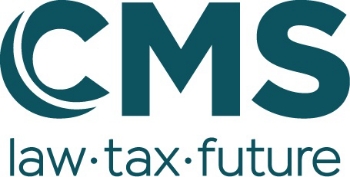Anti-money laundering compliance
Legislation
Further developments
Stricter requirements
Virtual currency
Organised crime can be effectively combatted only if cross-border payments can be quickly identified. For this reason, the European Union first addressed the issue of combatting money laundering during the early 1990s and has since been vehement in pursuing this aim. A proposal for a directive published by the European Commission in July 2016 means that German money laundering law must once again be amended.
Anti-money laundering compliance
In Germany alone it is estimated that every year up to €100 billion is laundered. National legislation regarding combatting money laundering is set out in the Money Laundering Act. There is additional legislation for the financial sector found in the Banking Act.
The Money Laundering Act prescribes high duties of care for specific professional groups which frequently come into contact with financial transactions. The financial sector is particularly affected by this. The act's obligations have been subject to more amendments and restrictions in recent years. The requirements on anti-money laundering compliance are already exceptionally strict.
In February 2016 the European Commission submitted its plan of action for a more intensive approach to countering the finance of terrorism. It was surmised from this plan of action that further restrictive European money laundering requirements would be imposed in the near future. In July 2016 the commission submitted a proposal for further amendments to the Fourth Money Laundering Directive, which came into force only in June 2015.
This is relevant because the German legislature is still busy with the transposition of the directive from June 2015. The Federal Ministry of Justice is working on a ministerial bill which will soon be presented for a first reading in accordance with current plans.
In light of the new proposal for a July 2016 directive, it is questionable whether this time schedule can be observed. The two directives are so closely interlinked that lawmakers are advised to take the July 2016 amending directive into account in the planned ministerial bill.
The Fourth Money Laundering Directive has led to a considerable need for change in German law. One of the numerous requirements to be implemented is the introduction of a central register (the transparency register). Companies must deposit the names of their economic beneficiaries in this register. Economic beneficiaries are natural persons who stand behind a company and profit economically from its business activity.
The transparency register reinforces the transparency and legal certainty for companies subject to obligations set out in the Money Laundering Act and the Banking Act. So far, they have had to rely on information provided by contractual partners and in individual cases subject this to thorough review. In future, reference can be made to the data held on the transparency register.
It remains to be seen in what form Germany will implement the transparency register and whether this will be publicly accessible, as with the commercial register. The transparency register and the link to corporate law are also the reasons why responsibility for preparing the ministerial bill was transferred to the Federal Ministry of Justice, rather than the Federal Ministry of Finance, which is in principle responsible for combatting money laundering.
The amending directive supplements and specifies requirements, which in some cases are already provided in the directive, while in other cases it introduces completely new provisions.
The provisions on determining and recording economic beneficiaries of certain legal subjects have been specified and extended. So far, an important criterion for determining the economic beneficiary has been whether a natural person has an interest of 25% or more in a company. This threshold will now be lowered to 10% for certain companies with a particular risk with regard to money laundering and tax evasion. This will be the case particularly for intermediary companies without commercial activity, including mailbox companies. This change is a direct reaction to publication of the Panama Papers.
The provisions to record the economic beneficiaries of trusts and foundations are also to be extended.
The proposal to impose the directive's obligations on exchange platforms for virtual currencies (eg, Bitcoin) and providers of electronic money instruments is completely new. So far these providers have not been covered by the Money Laundering Act. If implemented, these providers would have to apply the act's strict duties of care and documentation and would introduce appropriate anti-money laundering compliance measures. Recording the providers of virtual currencies and electronic money instruments would have no direct implication on companies in the financial sector subject to the act.
Those subject to this act should keep a close eye on the legislative process transposing the two money laundering directives and adapt their anti-money laundering compliance programmes in good time. As the proposed deadline to implement the measures in the new July 2016 directive is January 1 2017, a quick reaction may be required. In particular, the introduction of the transparency register and the extension of the obligation to record economic beneficiaries could result in considerable need for adaptation.
This article was first published by the International Law Office, a premium online legal update service for major companies and law firms worldwide. Register for a free subscription.



